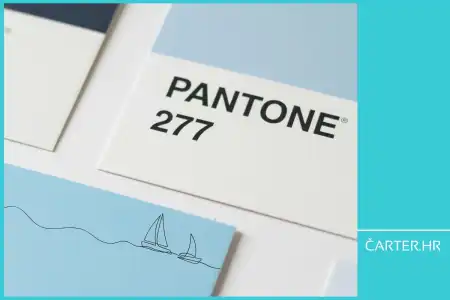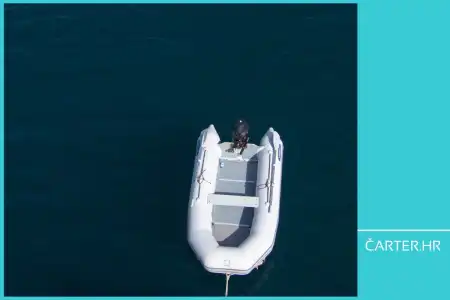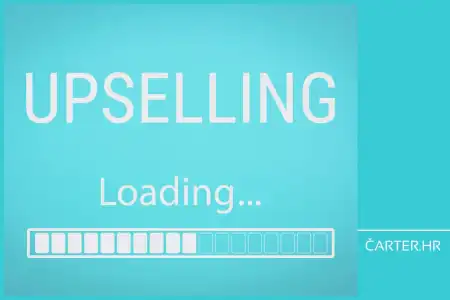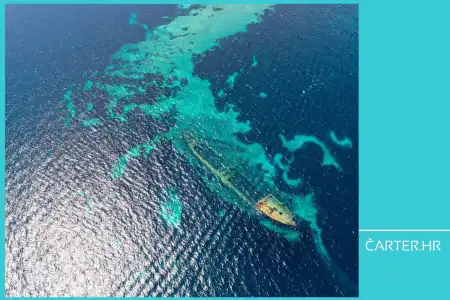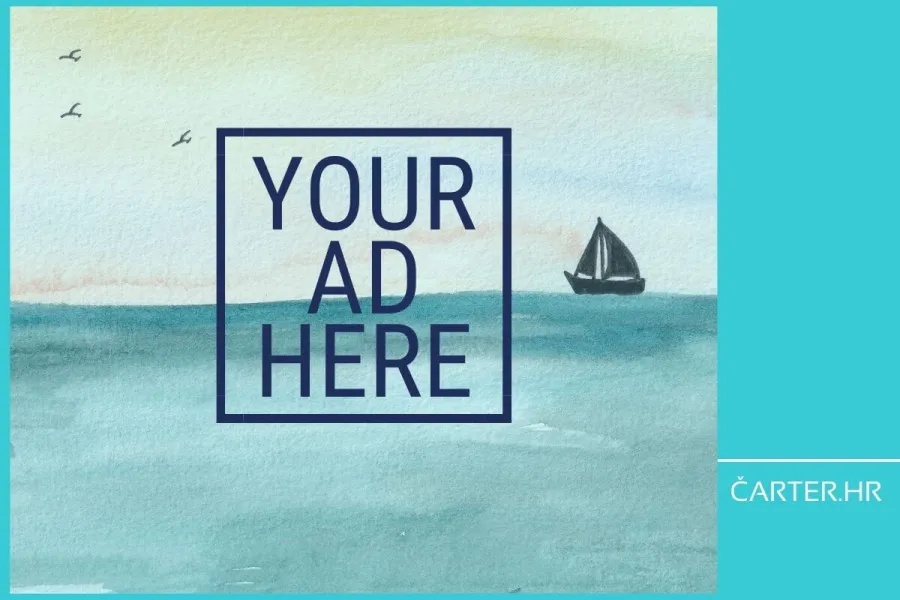
- 24.02.2025.
- News, Marketing, Management
You have a perfectly equipped fleet, the best locations, and competitive prices, yet your competition is filling up bookings more effectively. Why? Because they use Google advertising, and their ads appear first on Google when potential guests search for “catamaran rental in Croatia.” How can you avoid the most common mistakes in Google advertising and turn clicks into real clients? Read on to find out how to optimize Google ads and make your yacht charter the first choice for guests.
Google advertising provides yacht charter companies with the opportunity to reach guests who are actively searching for sailboats and catamarans for rent.
Through precise targeting of key terms such as “sailboat rental Croatia” or “yacht charter Split,” ads are displayed to users at the right moment.
Ads can lead to a website, a contact form, or directly to a WhatsApp inquiry, increasing the likelihood of a quick conversion.
With a well-planned bidding strategy and relevant ads, they can avoid losing potential guests, as your competition is surely also investing in Google Ads.
Google ads work – but only if they are properly set up
Google ads for yacht charter companies must lead to relevant landing pages because the user’s goal is clear – they are looking for a specific boat for rent, not general information.
If an ad directs the user to an irrelevant page, such as the homepage or a list of all boats in your fleet, the moment of interest is lost, and the potential guest moves on to the competition.
The exact process and why proper ad targeting is important:
- User search
The user enters a specific query into Google, such as "Lagoon 42 catamaran rental Split" or "Bareboat charter Hvar." Their intent is clear – they want to browse the offer and potentially make a reservation. - Ad display
The Google Ads system recognizes the keywords and displays an ad from a yacht charter company offering that exact boat or a similar option. The ad title and description must clearly communicate that the advertised boat is available or that there is a comparable alternative. - Clicking on the ad
The user clicks on the ad expecting to land exactly where they need to be. If the ad takes them to an irrelevant page (e.g., a general page with a list of all boats), they will not keep searching and will lose interest. - Landing page
Ads must lead to a specific landing page:
If a Lagoon 42 is being advertised, the user must land on the page for that exact boat, with details, images, and a clear CTA (Call-to-Action) such as "Book Now."
If the ad targets "catamaran rental in Split," it should lead to a filtered list of all available catamarans in Split, not the homepage or a broad, non-specific offer. - Conversion (booking or inquiry)
When the user sees a relevant page, the chances of them sending an inquiry or completing a reservation significantly increase. If the page is not relevant, the user leaves, and the click becomes a wasted expense.
 Bonus: Why does the wrong landing page URL “kill” ad performance?
Bonus: Why does the wrong landing page URL “kill” ad performance?
- Higher bounce rate – users quickly exit the page if they don’t find what they were looking for.
- Lower quality score in Google Ads – Google evaluates the relevance between the ad and the landing page. If it’s not relevant, the cost per click increases, and ad visibility decreases.
- Fewer conversions – if users have to search for additional information after clicking, they are more likely to abandon the process.
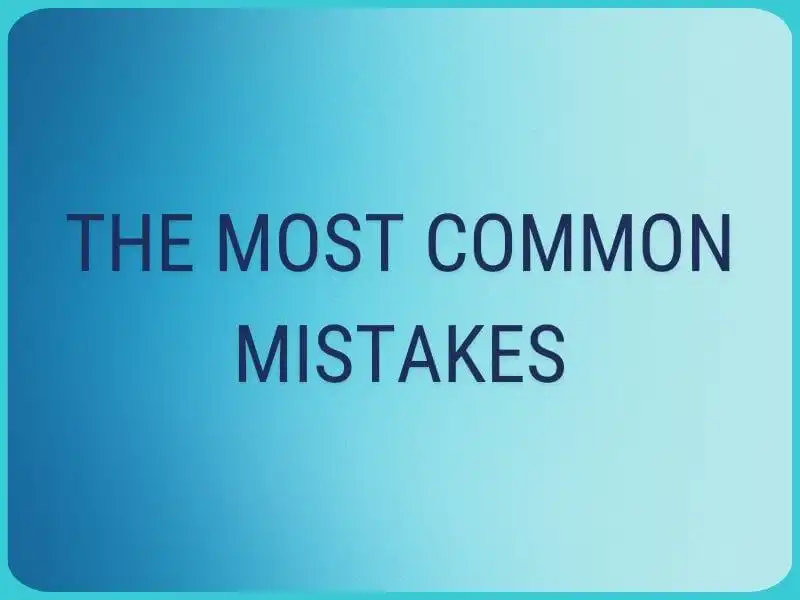
The most common mistakes yacht charter companies make with Google ads
Although Google Ads can deliver excellent results, many companies unnecessarily waste their budget due to improper campaign setup.
Mistakes are often the result of poor planning, a lack of understanding of how the system works, or simply neglecting key factors that influence ad success.
Among the most common mistakes are:
1. Too broad targeting
Using general terms like "boats" or "vacation" leads to inaccurate clicks and budget waste.
For example, a user searching for "boats" could be looking for anything – from boat construction to used boats for purchase. Google Ads operates based on user intent, so it is necessary to use specific keywords that clearly signal interest in charter boat rental.
Correct: "Catamaran rental in Dubrovnik"
Wrong: "Catamarans"
2. Unoptimized landing page
If an ad leads to a slow, unclear, or generic website, potential guests will quickly lose interest even before submitting an inquiry.
Google also tracks how long users stay on the page, and if it sees visitors leaving quickly, it lowers the ad's quality score, which increases the cost per click.
Examples of poor landing pages:
- An ad for a specific boat leads to the homepage instead of the boat’s dedicated page.
- A slow website with difficult navigation frustrates users and increases the bounce rate.
- Lack of a clear Call-to-Action (CTA), e.g., the "Book Now" button is not visible.
3. Poor campaign structure
Combining all keywords into a single campaign reduces control over the budget and makes optimization difficult.
If the same ad targets "yacht rental in Croatia," "yacht charter Adriatic," and "boat hire Dubrovnik," it becomes hard to adjust the bidding strategy and ads for each specific user intent.
How to properly structure campaigns?
- Separate campaigns by boat type (sailboats, catamarans, motorboats).
- Separate brand searches (e.g., "Lagoon 42 rental") from generic terms.
- Test different ads and monitor which works best for each segment.
4. Ignoring negative keywords
If negative keywords are not used, ads may appear for users searching for unrelated or unprofitable terms.
For example, ads may appear for people looking for "yacht jobs" or "cheap charter," which are searches that do not lead to bookings.
Solution:
- Regularly add negative keywords such as: "free," "used boats," "jobs," "boat purchase."
- Analyze the Search Terms Report in Google Ads to remove irrelevant terms.
5. Improper conversion tracking
Many yacht charter companies do not measure how many actual bookings come from ads. If Google Ads is not connected to Google Analytics and properly set up for conversion tracking (e.g., inquiry submission, phone call, reservation), data will be incomplete, and the strategy will be based on assumptions.
If accurate tracking is not in place, it is impossible to know which ads bring results, meaning the budget may be spent on campaigns that do not generate bookings.
What should be tracked?
- The number of inquiries sent via the web form.
- The number of clicks on WhatsApp or phone calls.
- The actual number of bookings generated from ads.
- The conversion value to optimize ad profitability.
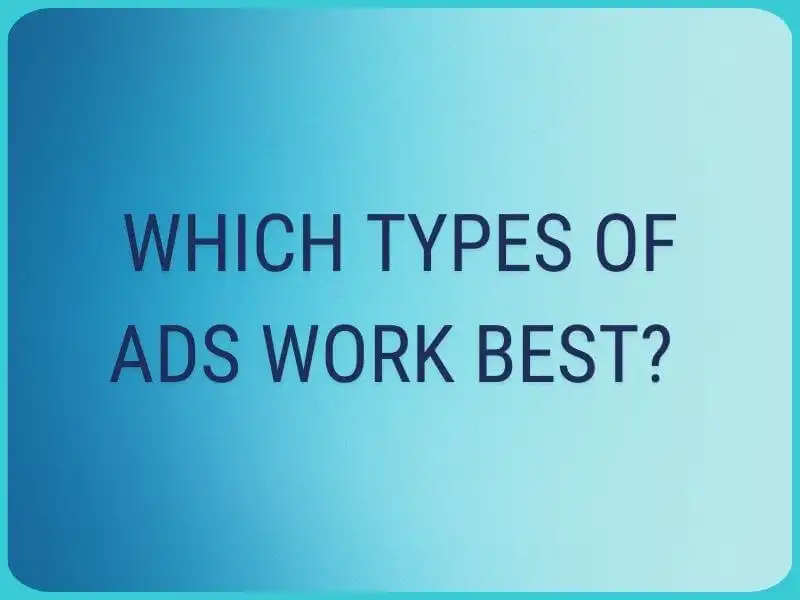
Which types of ads work best for yacht charter companies?
Choosing the right type of ad is crucial for the success of the entire campaign.
Different formats have specific advantages depending on the objectives, target audience, and the stage of the purchasing process the user is in.
A combination of multiple ad types often yields the best results as it allows for presence across multiple digital touchpoints.
Search ads
These are the most effective ads for attracting users with a clear intent to book. They appear to people who actively search for terms like "catamaran rental Hvar," "bareboat charter Split," or "yacht rental Croatia." They generate the highest conversion rate, but competition is also high, meaning keywords and budget need to be optimized.
- Best for: direct inquiries and quick bookings
- Worst for: generating interest among users who are still exploring options
Display ads
Visual ads (banners) appear on various websites and portals. Their role is not so much direct conversion but rather brand awareness and remarketing. For example, someone who has visited your website but has not submitted an inquiry may see your ad on another portal, reigniting their interest in your offer.
- Best for: increasing visibility and remarketing
- Worst for: direct bookings if the user is not already familiar with the brand
YouTube ads
Video ads are excellent for showcasing the experience and atmosphere that a boat rental offers. Professionally produced videos featuring stunning locations, boats, and satisfied guests can create emotion and a desire to book.
- Best for: building emotions and sparking interest
- Worst for: those looking for quick information and wanting to book immediately
Performance Max
Automated campaigns that utilize all available Google Ads formats – search, display, YouTube, Gmail, and Discovery. This format uses machine learning to optimize ad delivery based on user behavior, which can yield excellent results with minimal manual optimization.
- Best for: maximizing budget efficiency and broad presence
- Worst for: those who want full control over every segment of the campaign
Which ad combination is best?
The best results come from a combination of multiple ad types, such as:
- Search ads for direct bookings
- Display ads for remarketing to users who have already visited the website
- YouTube ads for premium clients who generate higher booking value
- Performance Max for maximum visibility and automation
How to attract the right guests, not just clicks?
Not every click is worth the investment.
For an ad campaign to be profitable, it is important to target users with a clear intent to book.
Methods of precise targeting:
- Using long-tail phrases - "catamaran charter Croatia with skipper" attracts a specific audience
- Demographic filtering - focusing on guests from the USA, Germany, and Scandinavia who have a higher budget
- Geographic targeting - displaying ads only in regions with a high number of nautical tourists
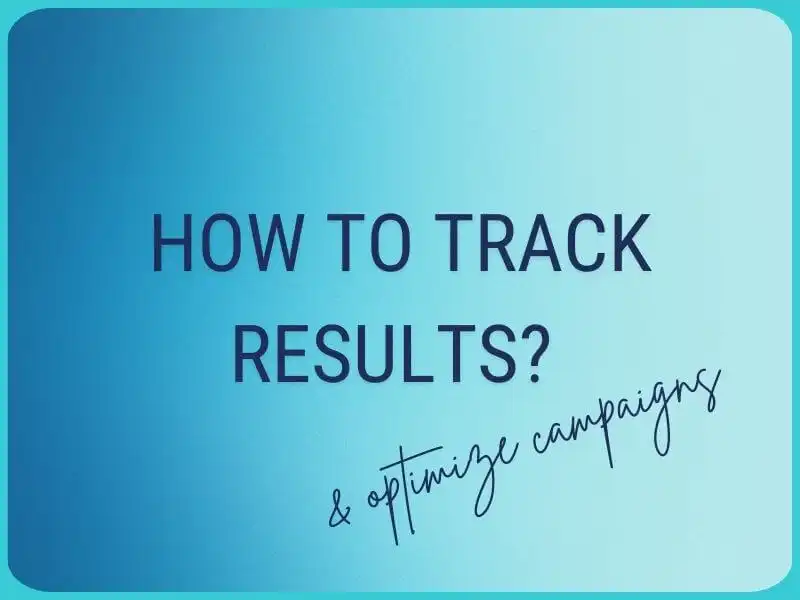
How to track results and optimize campaigns for higher ROI?
Without regular analysis, Google Ads campaigns can drain the budget without delivering real results. Clicks alone are not enough – what truly matters is how many of those clicks result in inquiries and bookings. If ads are not monitored and optimized, there is a high chance that the budget is being spent on users who have no real intention of renting a boat.
Tools for tracking success:
Google Analytics
Provides detailed traffic analysis and insights into user behavior on the website. By tracking bounce rate and time spent on the page, it is possible to determine how relevant the ads are. If users arrive but leave quickly without interaction, the issue is likely with the landing page or the expectations set by the ad.
Google Ads reports
Show key metrics such as CTR (click-through rate), CPC (cost per click), and conversions. Analyzing this data can help determine:
- Which keywords generate the most bookings
- Which ads have a high CTR but a low conversion rate (which may indicate a problem with the landing page)
- Whether the conversion cost is too high and if the bidding strategy needs adjustment
A/B testing ads
Testing different versions of ads helps identify the ones that yield the best results. Differences may include the title, description, call to action (CTA), or even the landing page where the ad leads.
Tracking calls and inquiries
For yacht charter companies, a significant number of inquiries come via phone or WhatsApp. Google Ads enables tracking of calls generated from ads, which is crucial for evaluating the campaign’s actual impact. If ads generate many calls but few bookings, it may be necessary to improve the sales process or filter out users who are not serious potential guests.
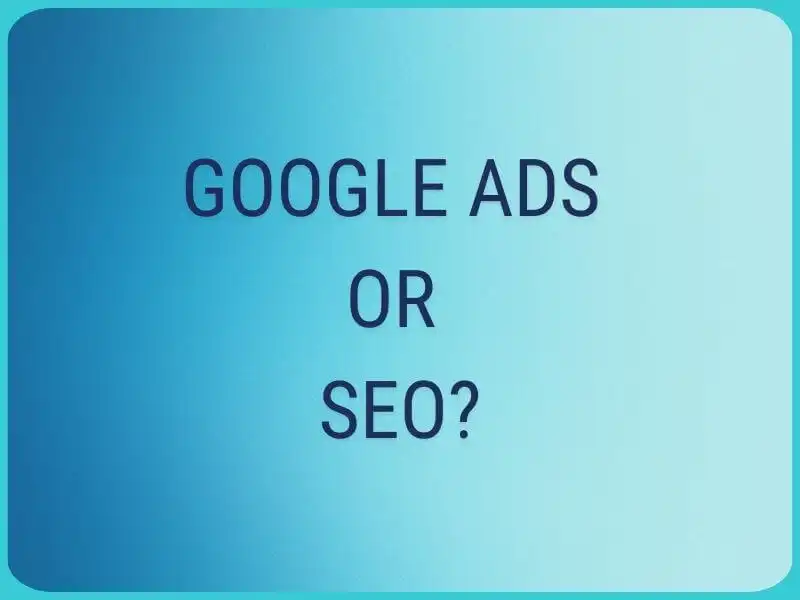
Is it better to invest in Google ads or SEO?
SEO can deliver long-term results, but it requires more time and continuous optimization to keep the website competitive.
Google Ads, on the other hand, allows for instant positioning at the top of search results, but at a cost per click.
The best strategy is a combination of both approaches – a stable increase in organic traffic while simultaneously attracting urgent inquiries through paid ads.
Advantages of Google ads:
- Fast results – ads appear immediately after the campaign is launched, which is ideal for seasonal promotions
- Targeting specific keywords – it is possible to precisely select which searches will trigger the ad
- Easily measurable results – every conversion can be tracked, allowing real-time budget optimization
Advantages of SEO:
- Long-term profitability – once a website achieves a good ranking, visits come without additional costs per click
- Organic traffic is free after optimization – there is no need for continuous payments as with ads
- Better visibility in searches – websites appearing in organic results often inspire greater trust among users
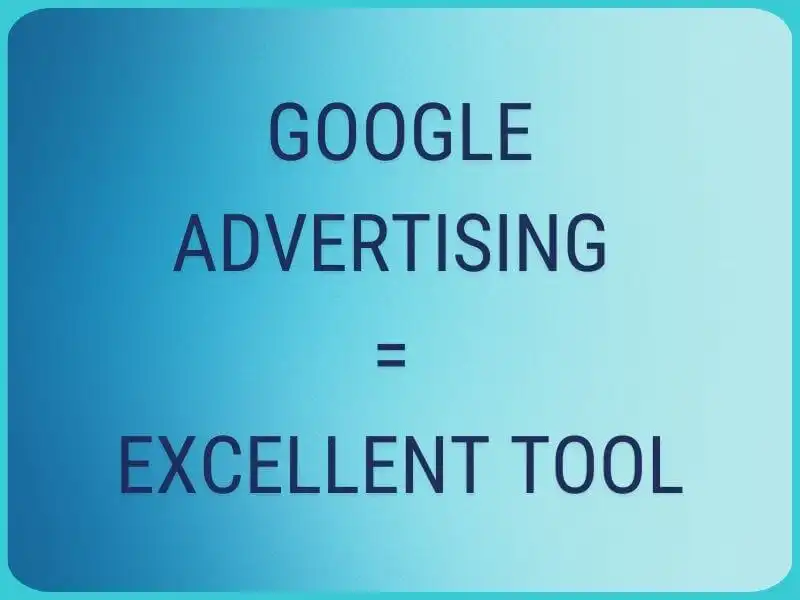
Google advertising = an excellent tool for yacht charter companies
However, Google advertising requires proper setup, analysis, and optimization.
Without a well-structured approach, the budget can quickly be wasted on clicks that do not lead to bookings. The true value of Google Ads lies in planning, selecting relevant keywords, testing ads, and continuously adjusting campaigns based on collected data.
Those who invest effort into quality campaigns and precise targeting will gain the most from Google advertising.
When used correctly, Google advertising not only attracts traffic to the website but can also become an excellent channel for consistently filling the fleet and increasing revenue.
Long-term success comes from a smart combination of budgeting, adapting strategies to market conditions, and simultaneously investing in SEO to reduce dependence on paid advertising.
Want more bookings with effective Google advertising?
Contact us and send an inquiry for a personalized analysis to learn how we can optimize your Google Ads campaigns for better results.

Sign up for our newsletter and discover the latest strategies for successful business in the yacht charter industry.

Categories of trends
- News
- Sale
- Marketing
- SEO
- Web design
- Social media
- Technology
- Regulations
- Management
- Education
- Finances
- User experience
Newsletter
Sign up for the newsletter and receive the latest trends and tips straight to your inbox
